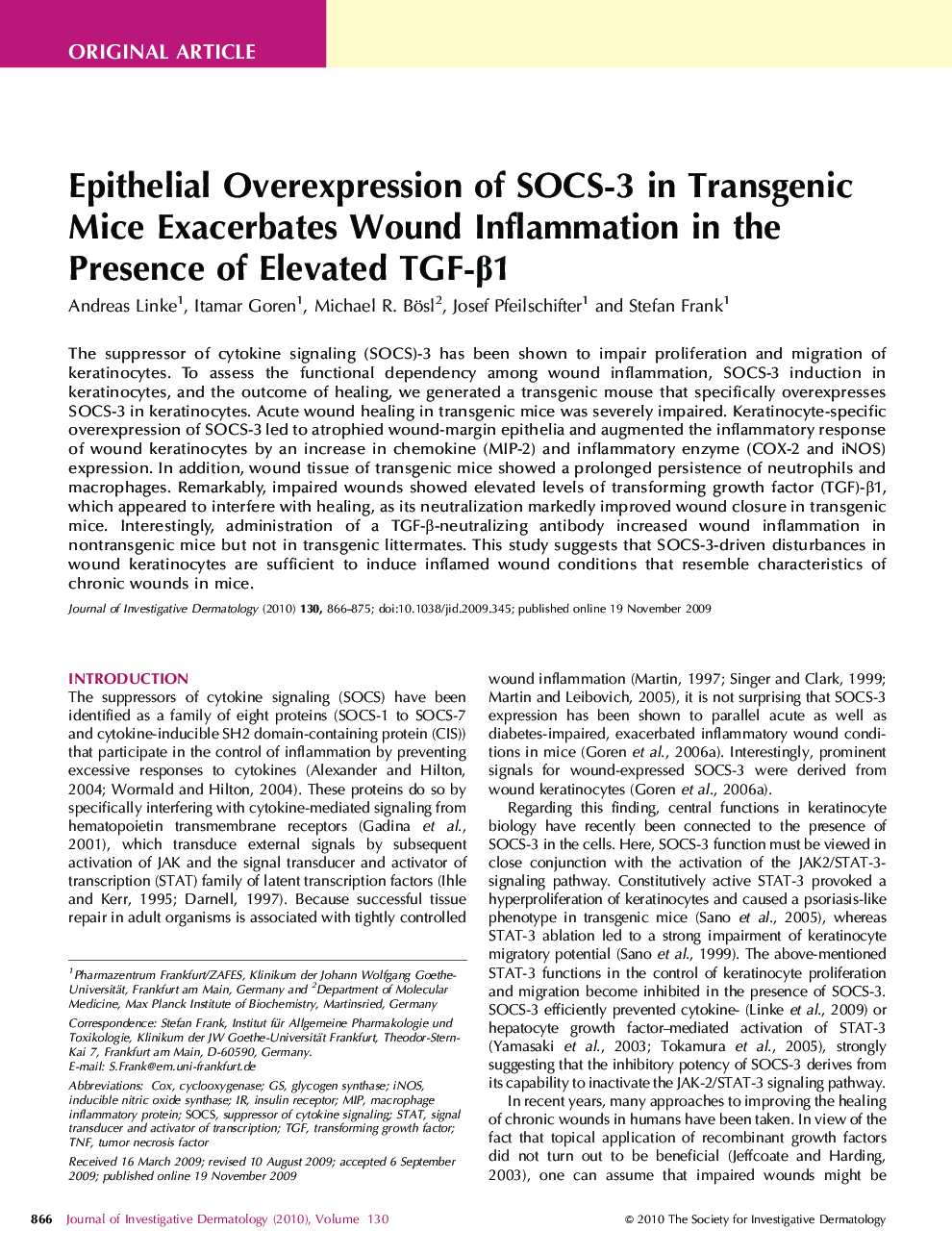| Article ID | Journal | Published Year | Pages | File Type |
|---|---|---|---|---|
| 3216218 | Journal of Investigative Dermatology | 2010 | 10 Pages |
The suppressor of cytokine signaling (SOCS)-3 has been shown to impair proliferation and migration of keratinocytes. To assess the functional dependency among wound inflammation, SOCS-3 induction in keratinocytes, and the outcome of healing, we generated a transgenic mouse that specifically overexpresses SOCS-3 in keratinocytes. Acute wound healing in transgenic mice was severely impaired. Keratinocyte-specific overexpression of SOCS-3 led to atrophied wound-margin epithelia and augmented the inflammatory response of wound keratinocytes by an increase in chemokine (MIP-2) and inflammatory enzyme (COX-2 and iNOS) expression. In addition, wound tissue of transgenic mice showed a prolonged persistence of neutrophils and macrophages. Remarkably, impaired wounds showed elevated levels of transforming growth factor (TGF)-β1, which appeared to interfere with healing, as its neutralization markedly improved wound closure in transgenic mice. Interestingly, administration of a TGF-β-neutralizing antibody increased wound inflammation in nontransgenic mice but not in transgenic littermates. This study suggests that SOCS-3-driven disturbances in wound keratinocytes are sufficient to induce inflamed wound conditions that resemble characteristics of chronic wounds in mice.
